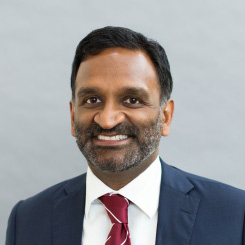On his flight to World Youth Day in Madrid this morning, Pope Benedict XVI responded to a question about the current economic crisis. Not sure what the question was, but the well-respected Italian Vatican analyst Andrea Tornielli captured the reply. Here’s my quick translation of the Pope’s answer:
The current crisis confirms what happened in the previous grave crisis: the ethical dimension is not something external to economic problems but an internal and fundamental dimension. The economy does not function solely on mercantile regulations, but needs an ethical reason to work for man. This is what John Paul II affirmed in his first social encyclical: man must be at the center of the economy and the economy must not be measured by profit maximization but by the good of all, which includes responsibility towards the other. The economy works truly well only if it works in a human way, in respect for the other according to different dimensions. The first dimension is responsibility for one’s nation, and not only for oneself. The second is responsibility towards the world: nations are not isolated, as Europe is not closed in on itself, but responsible for all humanity, and must confront economic problems with this “key” of responsibility also for other parts of the world, for those countries that experience hunger and thirst. The third dimension concerns the future, we have to protect our planet, but we must also protect the working of the labor system for all, to think of tomorrow as well as today. If today’s youth do not find prospects for their lives, our today is mistaken and wrong.
It’s pretty clear that the Pope is referring to the economic problems particular to Spain, where youth unemployment is over 40 percent, and also where protesters known as los indignados are blocking the reform attempts of the Spanish government. The same indignados who’ve attempted to start riots in Madrid with World Youth Day pilgrims. The Holy Father is clearly a gentle and patient man.
The Pope also addresses ethics, the central role of the person, our responsibility to others and to the future of our planet. Nothing he said was at all different from what he or his predecessor, Blessed John Paul II, has indicated as a morally correct understanding of the market economy. And as he has previously said, dealing with our failings and weaknesses is the price of human freedom and responsibility. The more freedom we have, the greater the risk of our misusing it. But this is not a reason to restrict that freedom; doing so would actually replace the person from the center of the economy with cold, impersonal regulations.
Perhaps the Pope was referring to the record profits of some banks and other companies while unemployment remains high. Much of this is of course due to government policies to “stimulate” the economy in times of uncertainty, regardless of how that money is spent. Was the Pope questioning the results of Keynesian stimulus spending?
The real challenge for economists and policy makers is how do we move from the good intentions of providing ever-increasing, ethically-sound prosperity for all to actual results. Part of that challenge is the fact that our prosperity is the result of constant competition and rapid change, which can also endanger our current standard of living. It is unlikely we’ll ever be able to “guarantee” a stable, prosperous future for everyone because no one actually “controls” the global economy. The cost of putting someone in charge would effectively cut off the competition and innovation needed to create wealth, and would most likely be a force for evil rather than good. The most we can do is to expand opportunities for all, which is difficult enough for today’s local and national leaders, let alone for any global authority.

